We carefully consider material options in design and have made conscious decisions about what to use, and how. All our raw materials are free from phthalates (BPA, BPS, BPF) including DEHP, lead and cadmium, and our products independently lab tested to verify.
Why don’t we use post-consumer recycled plastic?
We are often asked this question. In short, lack of material volume availability for manufacture. Full material traceability of post-consumer recycled plastic is essential to compliance with worldwide repeat use plastic food safety and health regulations, including migration of chemical compounds in use. This is infrastructure and cost intensive and any contamination could change known thermal and chemical properties of the material – a danger in conjunction with human consumption, especially when filling with hot drinks or microwaving.
Governments should be listening to its tax-paying public 81% of who want refillable products to be top priority for ending the plastic crisis and support the reduction of single-use consumption and its waste through legislation of legally binding plastic packaging reduction targets underpinned by Extended Industry Producer Responsibilities.
The best reusable is the one you use.
50% of global plastic production is used to manufacture single use packaging and that less than 10% of household plastic packaging gets recycled in the UK while in Australia only 14% of recovered plastic packaging is recycled.
“Recycling” as an overall objective validates waste and does not demand the sort of changes required to transition to a circular economy – that is, designing out waste from products and services to reverse the reality of our linear landfill based global economy through reduction, reuse and repair.
KeepCup was created as a simple solution to a systemic problem- a durable reusable tool that would outperform single-use disposable cups, reduce waste and inspire positive change for those who use them.We can’t purchase our way to a sustainable planet. The best reusable cup is the one you already own, and the one you use.
It’s not a world without plastic. It’s a world without plastic waste
Rebecca Prince-Ruiz, Plastic Free July Founder
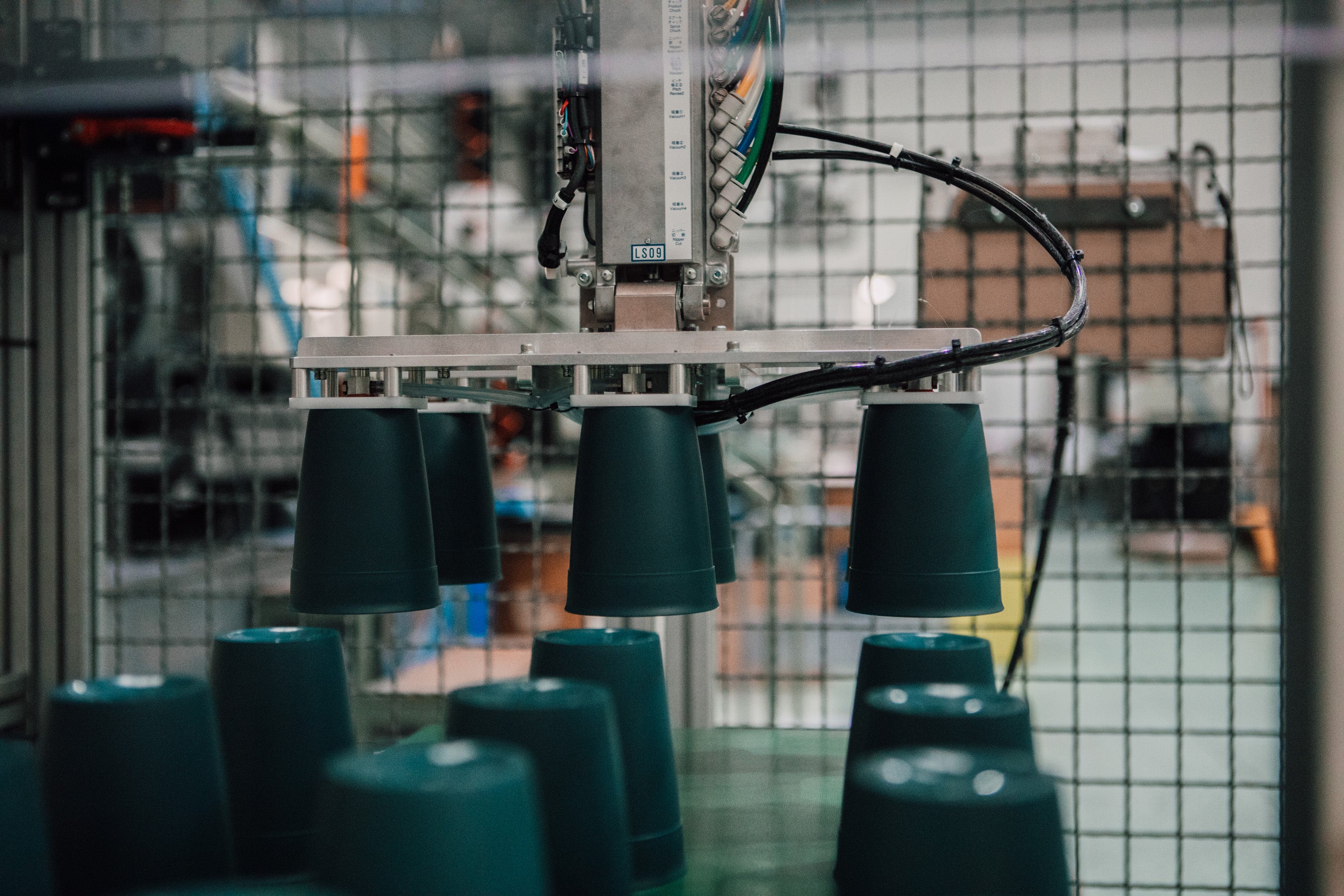
Coloured Plastic
Plastic is lightweight, durable and heat resistant, appropriate for quick service environments. All our plastic materials are free from phthalates (BPA, BPS, BPF) including DEHP, lead and cadmium, and our parts by material are independently lab tested to verify. The precision of injection molding and the low embodied energy during manufacture means it has low carbon emissions impact, the lowest breakeven with disposable cup use on our Life Cycle Assessment.
Polypropylene (PP) is one of the most widely used plastics for reusable food safe containers. It’s a tough, rigid plastic with a high melt point, so it can be heated to very high temperatures -making it fit for long term reuse.
Low-Density Polyethylene (LDPE) is another commonly used food-safe plastic, valued for its flexibility, impact resistance, and chemical resistance.
Part manufacture
Cups, lids and plugs are made in Australia, United Kingdom and China.
Manufacture and assembly waste
Reject plastic parts, extrusion and tool waste, as well as customer returns and rejected parts from our assembly (sorted by material), are reground and used in the manufacture of other products that are not required to be food contact safe or colour matched.
End of life
Replacement parts are available, so you can replace the part, not the product. Our polypropylene and low density polyethylene are widely recyclable in most household waste collections, just place in your recycle bin.
Less than 10% of all plastic ever produced has been recycled. Currently, 40% of all plastic produced globally is for single-use packaging. Reusable solutions are the only way forward to meaningfully reduce waste and pollution.
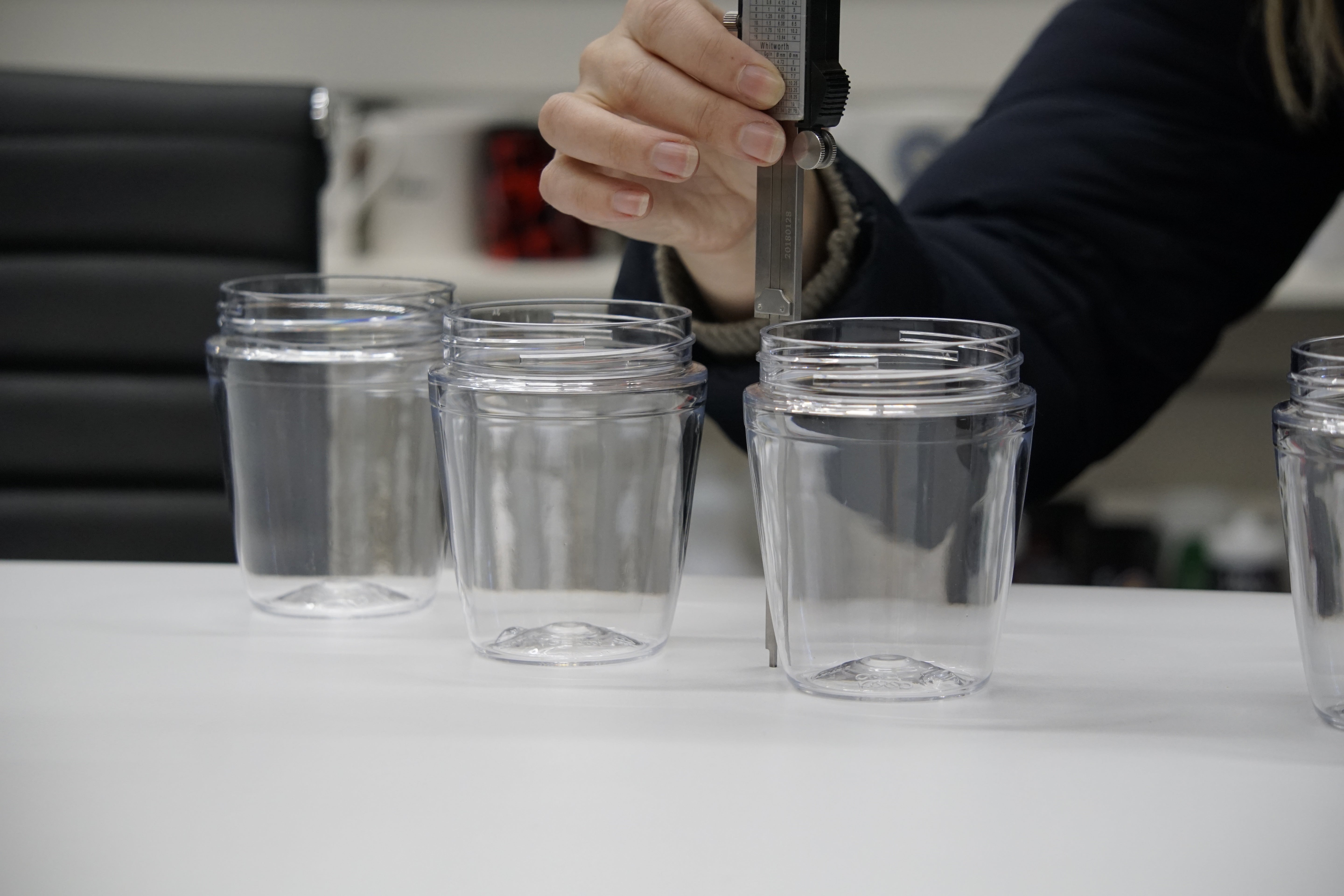
Clear Plastic
Tritan is a clear co-polyester plastic — durable, lightweight, and an unbreakable alternative to glass. All KeepCup clear parts are made from Tritan Renew, which contains 50% certified recycled content.
It is fee from phthalates (BPA, BPS, BPF) including DEHP, lead and cadmium, and product parts independently lab tested annually to verify.
Part manufacture
Cups, lids and straws are made in Australia and China.
Manufacture and assembly waste
Currently, in Australia there is no local commercial recycling option for clear plastic (Tritan) due to its low volume and brittle nature, so it ends up in landfill.
At KeepCup, our long-term investment in local production and sustainability made it possible to take a different approach. We collected all our own reject parts and combined them with waste from our manufacturers, then teamed up with Precious Plastic Melbourne to safely and innovatively recycle the material. We then teamed up with Precious Plastic Melbourne to explore safe and innovative ways to recycle this material.
This material is being given new life in a limited run of 100% recycled Tritan Cold Cups, maintaining the same clarity and quality as our regular products.
In China our suppliers using Tritan Renew have internal recycling systems in place. Production scrap, trims, and rejects are kept clean collected, re-ground, and reused within their own manufacturing process to specific percentage parameters.
United Kingdom there is no local commercial recycling option for co-polyester Tritan Renew.
End of life
Replacement parts are available, so you can replace the part, not the product. Co-polyester Tritan Renew is not recycled locally and needs to be put in the bin.
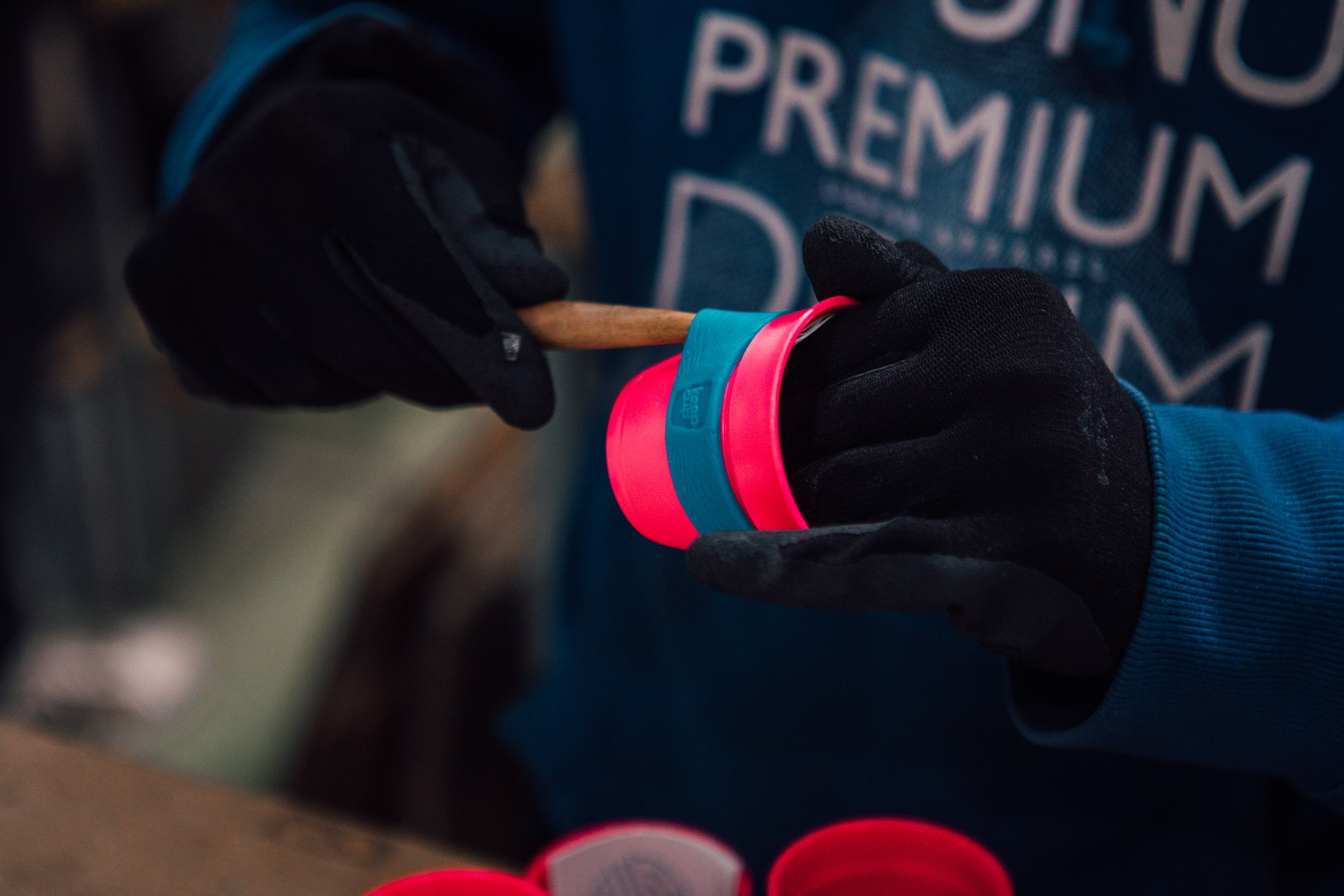
Silicone
Food grade silicone is durable and heat resistant, making it an excellent choice for use as thermal protection and sealing gaskets, maintaining a tight with repeated use.
Silicone is a synthetic elastomer — a type of soft plastic, and not a 'natural' material. It is made from carbon, hydrogen, oxygen, and silicon derived from silica (sand). Its production is energy-intensive, requiring silicon extraction, processing with hydrocarbons, hydrocarbons (fossil fuels), and other chemicals.
Unfortunately, silicone is mostly marketed with the term “plastic-free,” a claim that can be considered a form of greenwashing.
Part manufacture
China
Manufacture waste
Reject stock at point of manufacture is desiccated and made into silicone oil, which is used in a wide range of industrial applications.
Assembly waste and customer returns
We collect any reject stock, misprints and customer returns. We are storing these in Australia and the UK whilst we search for a local solution.
End of life
Replacement parts are available, so you can replace the part, not the product. Silicone requires a dedicated commercial recycling collection which is not offered by residential curbside collection. Discarded bands go to landfill.
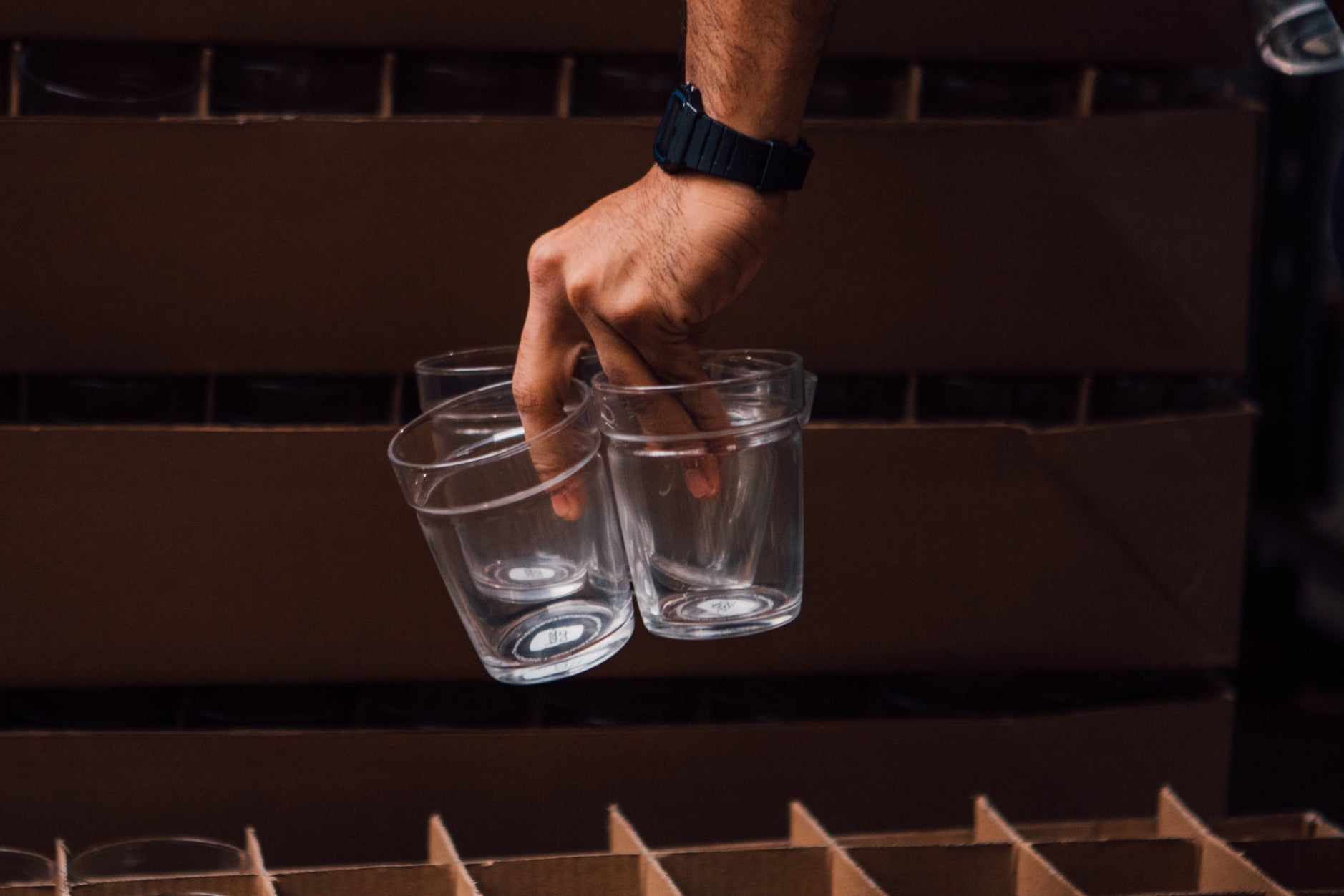
Glass
Soda lime glass is widely used for glass cups, bottles and containers. Our glass cups are manufactured in a machine blow-moulding line, which is standard for most commercial products. It delivers dimensional uniformity in diameter and lip, which is not consistently achievable using hand-blown glass production. Glass KeepCups are toughened by tempering, which is a process of extreme heating and rapid cooling. Due to the nature of glass as a material, it remains breakable but it's much more resistant to thermal shock and mechanical shock. It's also safer, as tempered glass beads when broken, making it less likely to cause injury.
Part manufacture
China
Manufacture waste
Rejected glass from productions is collected and returned to the furnace. Around 25% of the glass used in our products comes from recycled material.
Assembly waste
Customer returns and reject parts from assembly are collected and either sent to local glass blowing studios or to commercial recycling where the glass is crushed and remade into either wine or beer bottles or used as a sand substitute for road base.
End of life
Replacement parts are available, so you can replace the part, not the product.
Tempered soda lime glass like our glass cups are recyclable because its not laminated, and is tempered at lower temperatures than borosilicate glass, its compatible with standard container glass recycling.
Broken glass is not accepted in Australia's co-mingled household recycled bins.
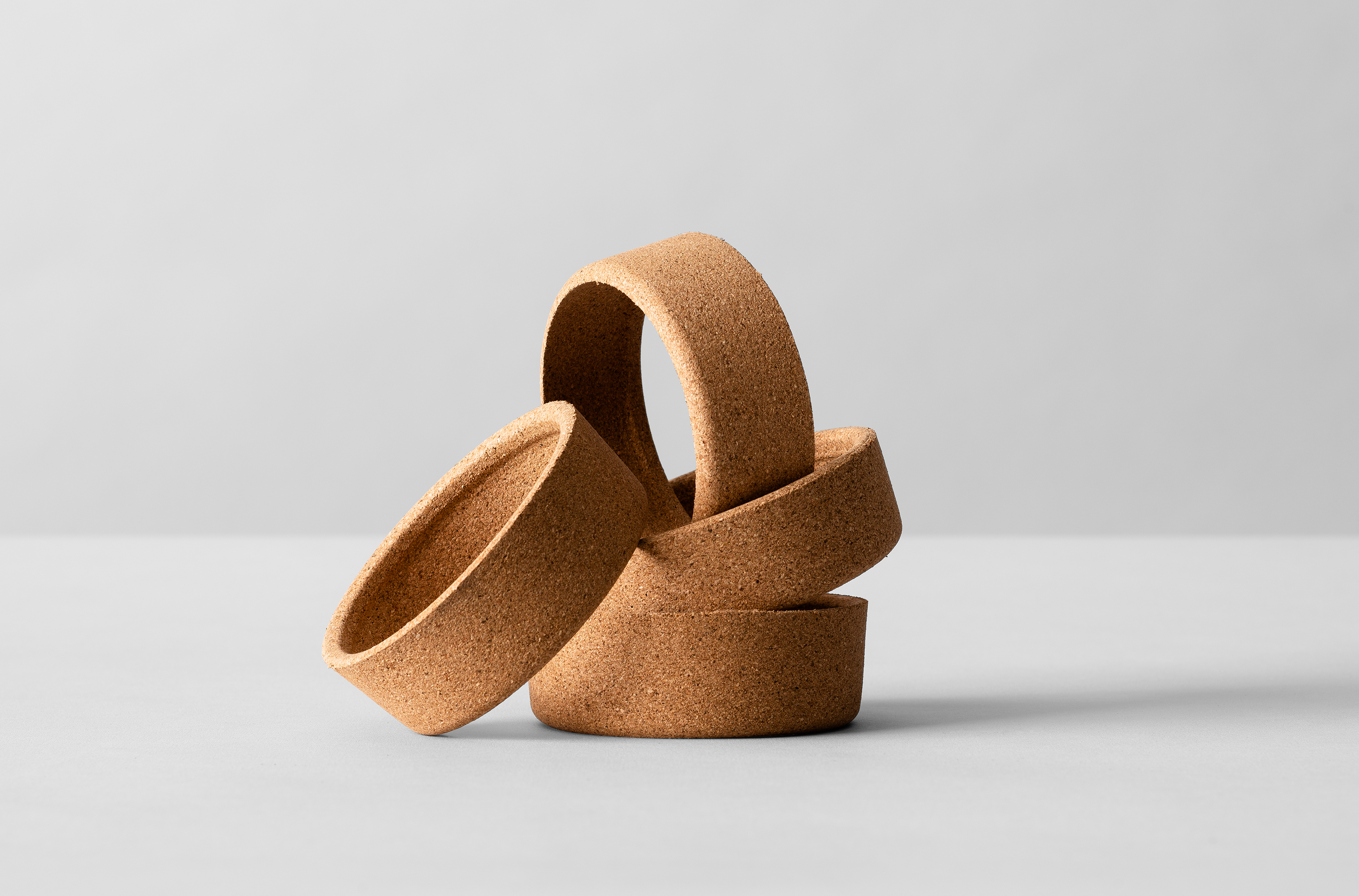
Cork
Natural, renewable, and biodegradable, cork is a sustainable material harvested from living trees. Our cork is made from 100% recovered offcuts from wine cork production in Portugal. These offcuts are granulated and compression-moulded with a minimal amount of vegan, food-grade polyurethane — just enough to hold the material together while retaining the look and feel of natural cork.
Part manufacture
Portugal
Manufacture waste
Cork waste from reject stock, extrusion and tool parts at point of manufacture is re-granulated and reused to manufacture new products.
Assembly waste and customer returns
Reject cork bands and customer returns, are crushed up and used as mulch on and around our garden beds pot plants in our Australia and UK offices.
End of life
Replacement parts are available, so you can replace the part, not the product.
When the cork band is no longer usable, you can either drop it off at a local cork recycling collection point, or crush it, wet it, and add to your garden or into pot plants as mulch like we do.
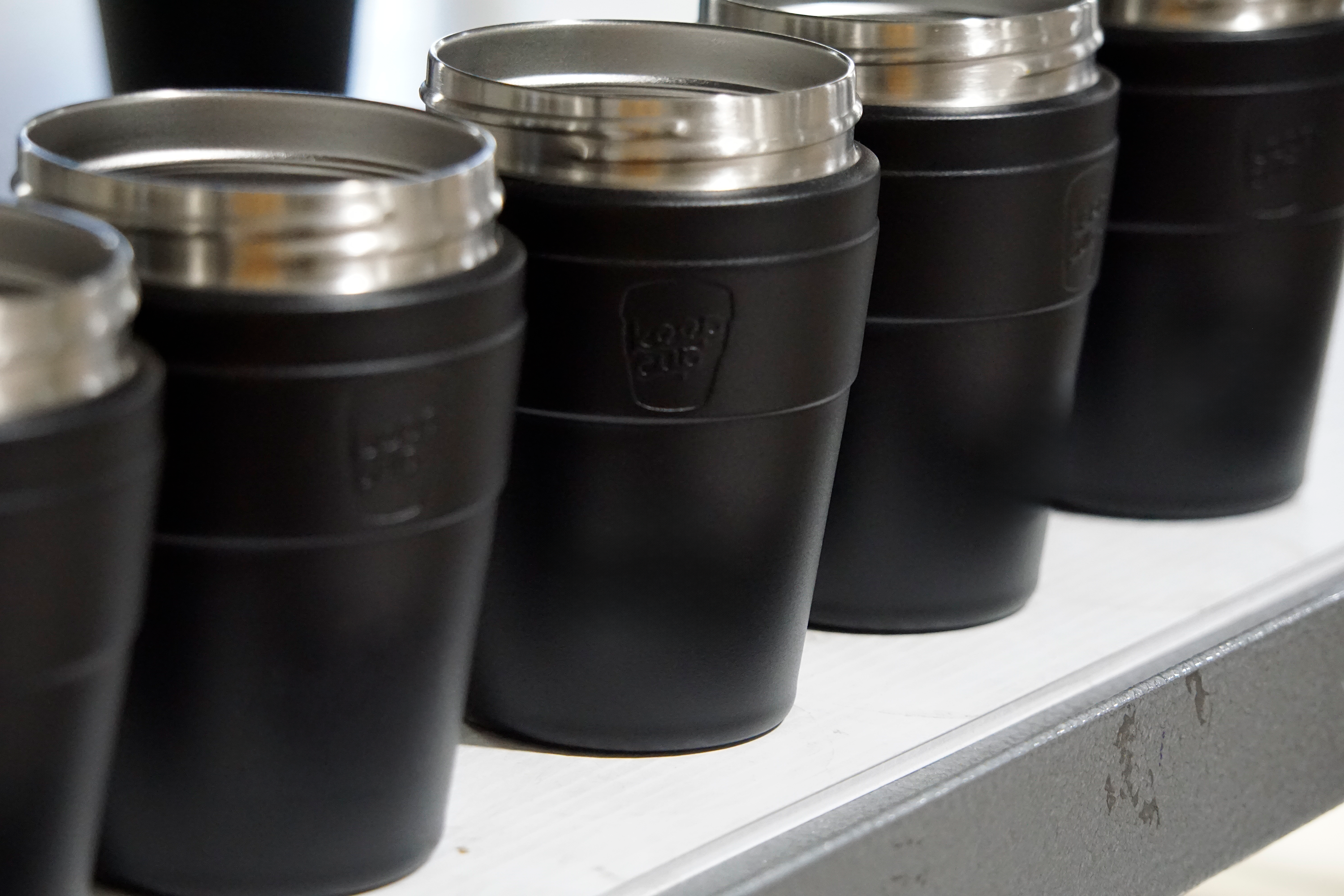
Stainless Steel
We use only 90% recycled 18/8 food safe stainless steel with electropolished interiors to provide a microscopically smooth, durable, and safe surface for drinking. The high grade material, combined with electropolishing means no metallic taste, eliminates the need for ceramic paint linings (risk of polyfluoroalkyl substances), and delivers on log term reuse, durability and recyclability.
Part manufacture
China
Manufacture waste
Parts that do not meet quality standard and scrap waste that are collected and sold back to the local mill for use with other scrap metal in production to create the 90% recycled 18/8 material grade used in our products. Circularity in action.
Assembly waste
Customer returns and reject parts from assembly are collected and sent to local commercial recycling. They are shipped back to Germany with other scrap metal for reprocessing. Due to stainless steels long life, high value and increasing demand the average recycled content in current global production is 25%. Scrap is valuable for the raw elements they contain, such as chromium and nickel, and for the reduced raw material required.
End of life
Replacement parts are available, so you can replace the part, not the product.
Stainless steel is 100% recyclable However, recycling through household collections isn’t always economically viable or practical in the waste stream .
Its best to drop off at local recovery waste centres along with any other household scrap metals.
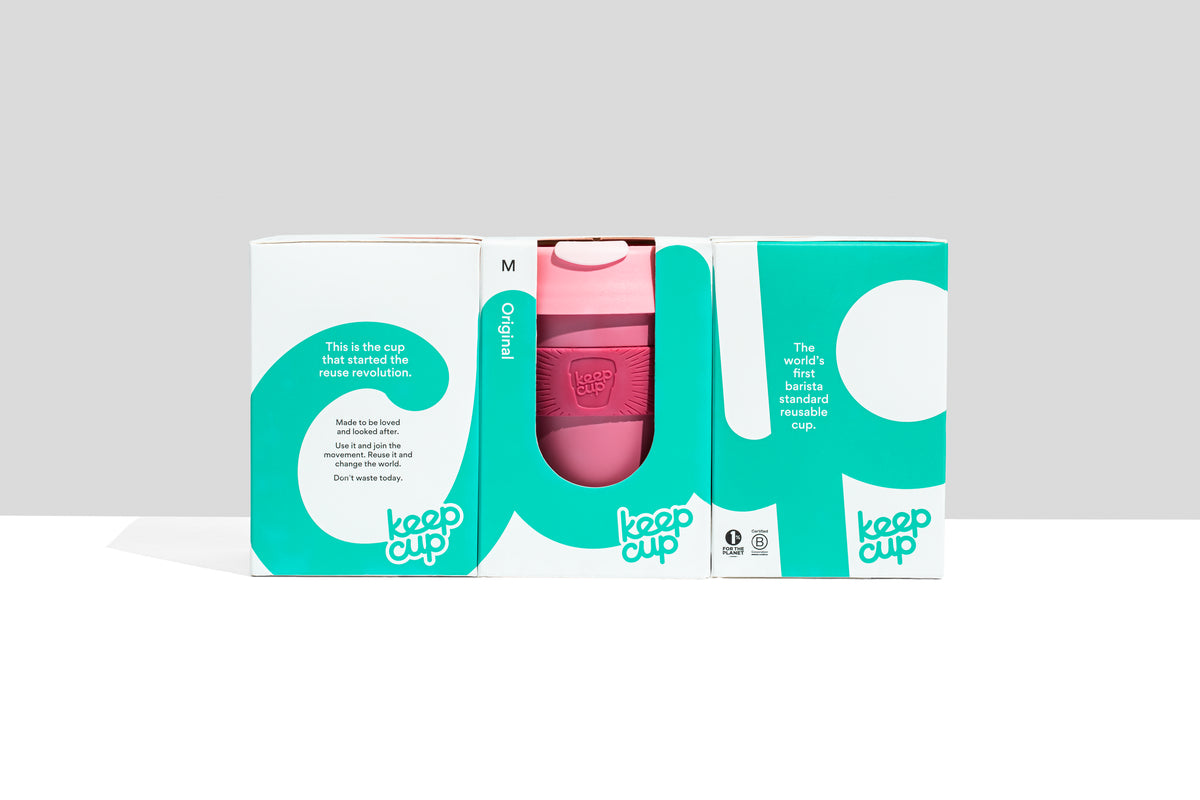
Paperboard
We manufacture our retail packaging locally in Australia and United Kingdom. and design in house for product protection, modularity and to minimise material waste.
Where appropriate, we work with customers to ship large orders bulk packed and semi assembled, without retail packaging, to reduce waste.
Our recycled cardboard cartons and mailers are designed to maximise product configurations and are first used to ship parts form our suppliers to us, then reused to ship products to customers
Packaging manufacture
Australia, United Kingdom, China and Portugal
Manufacture and assembly waste
100% of waste, rejected packaging is commercially recycled.
End of life
All retail packaging and cardboard cartons are readily recycled via household waste service collections.

